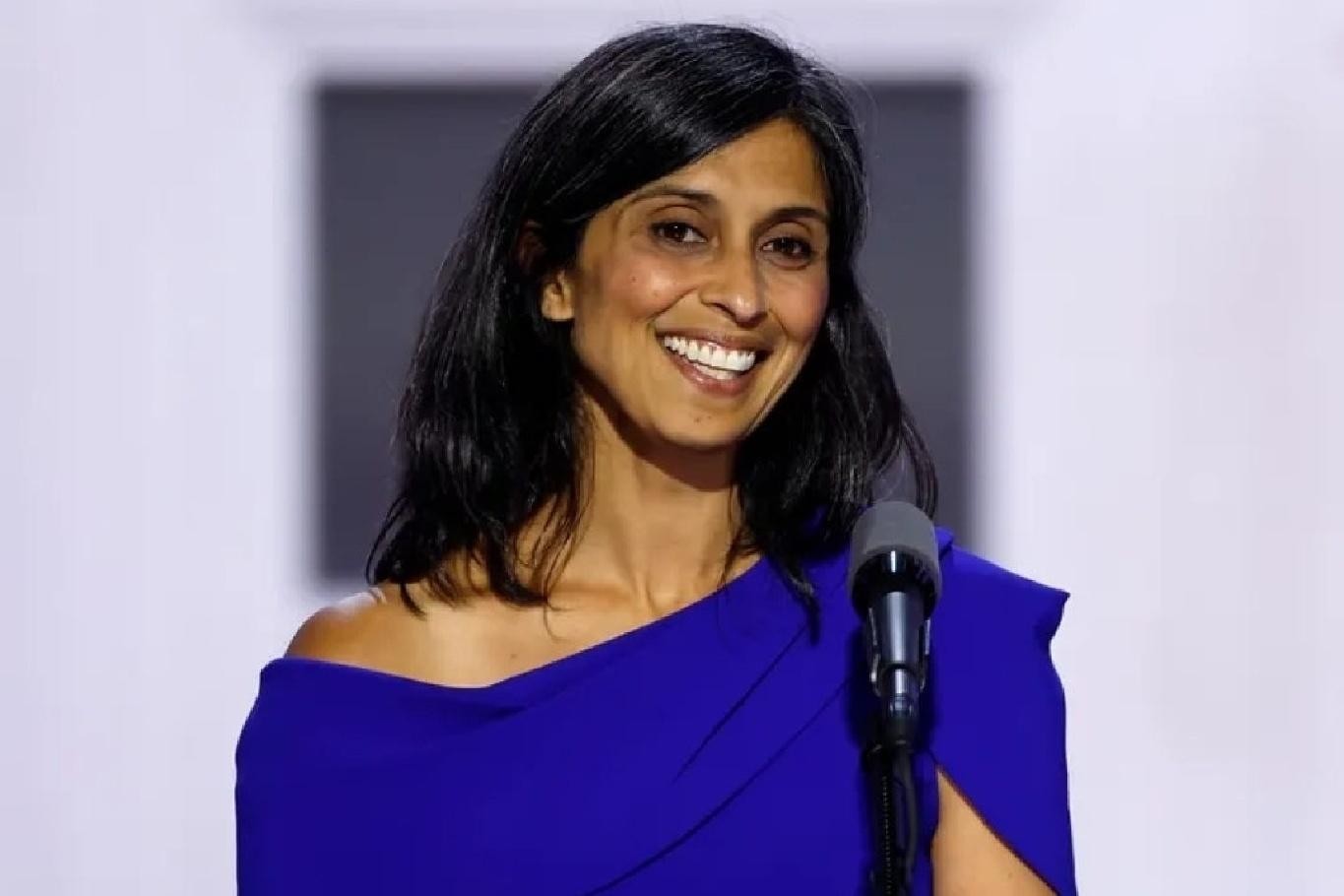
When Senator JD Vance was named Donald J. Trump’s running mate on the Republican presidential ticket, it also marked a historic moment: Usha Vance, an Indian American and practicing Hindu, is now poised to become a vice-presidential spouse.
This development underscores a significant reality: at this moment, a woman of Indian descent will either remain in the White House or become the second lady.
This milestone is part of the Indian American community’s growing political influence over the past decade. Kamala Harris made history in 2021 as the first person of Indian descent, and also the first woman and Black person, to become vice president. The 2024 presidential cycle is notable for featuring two Indian American candidates, Nikki Haley and Vivek Ramaswamy.
Currently, there are five Indian American members of Congress and nearly 40 serving in state legislatures—the highest number for any Asian origin group in the U.S., according to AAPI Data.
Indian Americans recently surpassed Chinese Americans to become the largest Asian group in the U.S. among those identifying with one country of origin, with nearly 4.4 million people identifying solely as Indian in 2020.
Most Indian immigrants arrived in the U.S. after 1965, following the removal of restrictions that had excluded Asians and others. The Indian population has surged in recent decades, driven by American companies hiring highly educated workers from India, especially in the technology sector.
Indians in the U.S. are the wealthiest and most highly educated Asian origin group on average. They also rank high in political and civic engagement, a trend linked to their democratic traditions and high English proficiency.
Karthick Ramakrishnan, founder of AAPI Data, noted that Indian Americans are becoming a significant force in American politics.
The population boom is a recent phenomenon. When Kamala Harris’s mother, Shyamala Gopalan, arrived in 1958, she was among only 12,000 Indian immigrants in the U.S.
Many post-1965 immigrants came for higher education, benefitting from the lifted quotas on country of origin. After studying, many found jobs and were sponsored for permanent residency. Others came directly for high-skilled jobs.
Usha Vance’s father, Krish Chilukuri, studied at the prestigious Indian Institute of Technology and works as a mechanical engineer. Her mother, Lakshmi Chilukuri, is a biologist and college provost at UC San Diego. They raised Usha and her sister in Rancho Peñasquitos, a suburb of San Diego, speaking Telugu and English at home. Their community grew from around 200 families in the mid-1980s to about 40,000 today, reflecting a national trend.
The demand for tech workers has spurred another wave of skilled Indian immigrants. About 60 percent of Indians in the U.S. arrived after 2000. Recently, there has also been a rise in undocumented Indian immigrants, with about 725,000 in the U.S. as of 2021.
The Indian diaspora’s diversity—spanning various faiths, economic backgrounds, and education levels—has sometimes led to internal divisions over issues like caste bias and Hindu nationalist politics.
Despite these differences, the community’s engagement in American politics has deepened. While the Chilukuris have not been particularly vocal about politics, they are registered Democrats, and Lakshmi Chilukuri has publicly supported climate initiatives.
Since 2008, Indian Americans, who have the highest voter turnout rates among Asian groups, have reliably supported the Democratic Party, seeing it as more inclusive and supportive of safety net policies. However, support for President Biden has waned, with more Indian Americans identifying as independents.
If Biden exits the 2024 race, Kamala Harris is the likely Democratic nominee, potentially making her the first Indian American presidential candidate.
Republican leaders see opportunities to attract Indian American voters with focuses on family, education, and immigration. Historically, prominent Indian Americans in the Republican Party have been Christian, but Usha Vance and Vivek Ramaswamy openly identify as Hindu.
Usha Vance’s role could influence Indian American voters and donors. However, while support for Biden has dropped, it hasn’t significantly increased for Trump.
Miriam Lobo, a family friend, expressed her excitement for Usha Vance’s potential new role but criticized Trump’s treatment of people.
Usha Vance remains somewhat enigmatic in her political views. She was a registered Democrat until at least 2014 and has not publicly aligned with her husband’s political shifts.
At the Republican National Convention, Usha Vance spoke warmly about her husband but notably did not mention Donald Trump.










